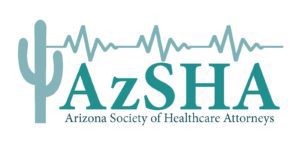CAN THE FTC COMPETE WITH CONGRESS TO BAN NON-COMPETES? IT MIGHT BE A “MAJOR QUESTION.”
By: Cober Plucker, Milligan Lawless, P.C.
The verdict is in. After a year-and-a-half of testimony, research, and deliberations, the Federal Trade Commission declared last month that employment non-compete agreements are an “unfair method of competition.” Slated to take effect September 4th, the Commission’s Final Non-Compete Clause Rule will prohibit new non-competes for every single employee in the country.[1]
But it doesn’t stop there. In addition to prohibiting future non-competes, the Rule also retroactively invalidates over 99% of existing non-compete agreements—almost 30 million of them. Only existing non-competes for “senior executives” earning more than $151,164 annually and who are in a “policy-making position” will remain enforceable.[2] It’s a bold policy initiative for any government bureaucracy.
Maybe too bold.
Some unhappy employers—including the U.S. Chamber of Commerce—have asked a U.S. District Court in Texas to stop the Rule before it takes effect, claiming that the Commission lacks authority to make such a sweeping policy change.[3] Apparently, the Commission can’t compete with Congress to ban non-competes.
The controversy arises from the interpretation of two sections of the Federal Trade Commission Act. Section 5 of the Act declares that “[u]nfair methods of competition in or affecting commerce, and unfair or deceptive acts or practices in or affecting commerce” are unlawful.[4] The Commission is “empowered and directed to prevent persons, partnerships, or corporations” from engaging in them,[5] and it does this by targeting suspected violators through case-specific, individual enforcement actions.[6]
In addition to its Section 5 enforcement authority, Congress granted the Commission various investigative and reporting powers in Section 6 of the Act.[7] In the middle of these provisions is the center of controversy—a one-line subsection that says the Commission has power “from time to time [to] classify corporations and…to make rules and regulations for the purpose of carrying out the provisions of this subchapter.”[8]
In the Commission’s view, when the “plain text” of Section 5 and Section 6(g) are taken together, it has the authority to define conduct it deems to be an unfair method of competition.[9] In fact, the Commission claims it’s done this sort of thing dozens of times between 1963 and 1978, for instance when it adopted rules related to the disclosure of extension ladder lengths and gas pump octane ratings.[10] And it believes prior court rulings are on its side, including a 50-year-old decision that says that Section 6(g) authorizes the Commission to adopt “rules defining the meaning of the statutory standards of the illegality the Commission is empowered to prevent.”[11]
Of course, business interests think the ‘70s-era jurisprudence aged like disco. They say that Congress intended Section 6(g)’s perfunctory rule-making provision to allow only “procedural rules,” not sweeping trade regulations with the force of substantive law. It sounds like a rehash of a decades-old argument, but business interests have something new up their sleeve—a sympathetic Supreme Court.
Weary of the “discovery” of unheralded powers in benign statutes, the Supreme Court has struck down multiple agency actions over the past 25 years, including:
- The FDA’s claim that the Food, Drug, and Cosmetic Act gave it authority to ban tobacco products;[12]
- The Attorney General’s attempt to use the Controlled Substances Act to prohibit physicians from prescribing controlled substances for assisted suicide;[13]
- The EPA’s interpretation of the Clean Air Act to justify expansion of permit requirements;[14]
- The CDC’s reliance on the Public Health Service Act to extend a nationwide eviction moratorium during the COVID-19 pandemic;[15]
- The Secretary of Labor’s reliance on the Occupational Safety and Health Act to mandate weekly COVID-19 testing for the unvaccinated;[16] and
- The EPA’s promulgation of the Affordable Clean Energy Rule to accelerate emissions reductions.[17]
While all of these regulatory assertions of power had a “colorable textual basis,” the Supreme Court said that “common sense” suggested it was unlikely that Congress had granted such extraordinary regulatory authority through “modest words,” “vague terms,” or “subtle device[s].” After all, Congress is presumed to leave major policy decisions to itself.[18] Crystalizing a quarter-century of rulings, the Supreme Court emphasized that federal agencies must identify “clear congressional authorization” when seeking to make a decision that has “vast economic and political significance.”[19] And it gave this principle a name: the Major Questions Doctrine.
So, the big question for the new non-compete Rule is whether it involves a Major Question. It’s certainly up for debate whether or not the Commission had “clear congressional authorization” and whether the blanket elimination of almost every present and future non-compete agreement is of “vast economic and political significance.” We’ll get a sense of the District Court’s preliminary inclination on this in early July when it decides whether the Rule should be stayed during the lawsuit.
One thing is clear now, though. This case has all the markings of a dispute bound for the Supreme Court. Stay tuned….
[1] The complete text of the Commission’s Non-Compete Clause Rule can be found at https://www.federalregister.gov/documents/2024/05/07/2024-09171/non-compete-clause-rule.
[2] FTC Rule Summary at https://www.ftc.gov/legal-library/browse/rules/noncompete-rule.
[3] Ryan LLC v. FTC, 3:24-cv-00986 (N.D. Tex.).
[4] 15 U.S.C. § 45(a)(1).
[5] Id. at § 45(a)(2).
[6] Id. at § 45(b).
[7] Id. at § 46.
[8] Id. at § 46(g) (emphasis added).
[9] Final Rule at pg. 38349
[10] Final Rule at pgs. 38349-50.
[11] Final Rule at pg. 38350; National Petroleum Refiners Assn. v. F.T.C., 482 F.2d 672, 698 (D.C. Cir. 1973).
[12] FDA v. Brown & Williamson Tobacco Corp., 529 U.S. 120 (2000).
[13] Gonzales v. Oregon, 546 U.S. 243 (2006).
[14] Utility Air Regulatory Group v. EPA, 573 U.S. 302 (2014).
[15] Alabama Assn. of Realtors v. DHHS, 594 U.S. 758 (2021).
[16] Natl. Federation of Indep. Bus. v. OSHA, 595 U.S. 109 (2022).
[17] W. Virginia v. EPA, 597 U.S. 697 (2022).
[18] Id. at 722-723.
[19] Id. at 716-724.
